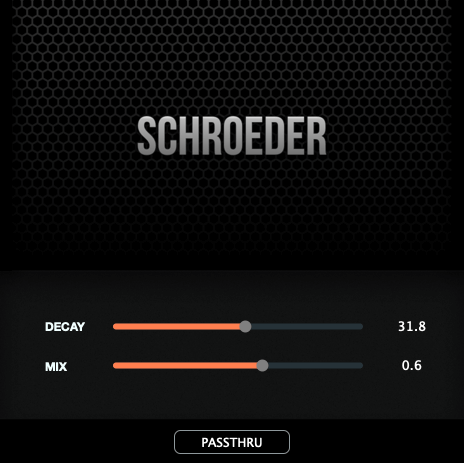discoDSP has announced the release of a free modeled reverb effect plugin based on the Schroeder reverberator.
Early Schroeder reverberators consisted of a series connection of several all-pass filters, a parallel bank of feedback comb filters and a mixing matrix.
The all-pass filters provide colourless high-density echoes in the late impulse response of the reverberator. These all-pass filters may also be referred to as diffusers. While all-pass filters are colourless in theory, perceptually, their impulse responses are only colourless when they are extremely short (less than 10 ms or so). Longer all-pass impulse responses sound similar to feedback comb-filters. For steady-state tones, however, such as sinusoids, the all-pass property gives the same gain at every frequency, unlike comb filters.
The parallel comb-filter bank is intended to give a psychoacoustically appropriate fluctuation in the reverberator frequency response. A feedback comb filter can simulate a pair of parallel walls, so one could choose the delay-line length in each comb filter to be the number of samples it takes for a plane wave to propagate from one wall to the opposite wall and back.
Thus, one may choose the comb-filter delay-line lengths more or less arbitrarily, and then use enough of them in parallel (with mutually prime delay-line lengths) to achieve a perceptually adequate fluctuation density in the frequency-response magnitude. In four such delays are chosen between 30 and 45 ms, and the corresponding feedback coefficients are set to give the desired overall decay time.
The plugin is free to download in VST3 and AU formats for macOS.
More information: discoDSP



